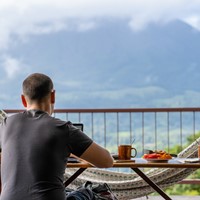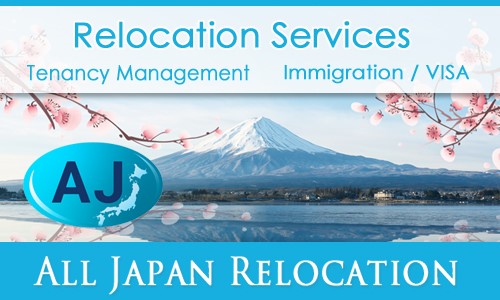Living and Working in Rural Japan: Realities, Communities, and Legal Tips for Digital Nomads

This article is contributed by ELENTO LLC.
This article continues from Discover Trial Living in Rural Japan: A New Choice for Digital Nomads and explores the realities of living and working in rural Japan. Here, we cover practical challenges, cultural norms, and community support to help you prepare for a successful trial living experience. Before diving in, it’s recommended to read the previous article for an introduction to the concept of trial living and the opportunities it offers for a slower, more immersive lifestyle.
Challenges & What to Expect in Rural Japan
Living and working in rural Japan can be deeply rewarding, but it also comes with its own set of cultural and practical challenges. These experiences are part of what makes trial living so valuable; you’re not just visiting, you’re stepping into a new rhythm of life. Here are a few key things to be aware of before you pack your bags and head for the countryside.
Limited English in Daily Life
Japan currently ranks #92 in the world for English proficiency, which means that English is not widely spoken across the country—even in major cities. The language barrier becomes even more noticeable the farther you go from urban centers. While many locals are kind and eager to help, In rural areas, you may find that everyday tasks such as ordering at restaurants or asking for directions require more effort and patience.
Translation apps such as Google Translate can be incredibly helpful for navigating daily life. It also helps to learn a few basic Japanese phrases, not just for function, but to show respect and openness. Even simple expressions like:
- Konnichiwa (Hello)
- Arigatou gozaimasu (Thank you)
- Doko desu ka? (Where is...?)
- Gochisousama (Said after a meal to show appreciation)
can go a long way in building rapport with locals. Most Japanese people don’t expect perfection, but even speaking just a little Japanese can sometimes bring a warm smile, and there are many friendly local communities that go beyond language barriers.
Cafés and Restaurants Are Not Always Laptop-Friendly
If you're used to working from trendy cafés in major cities, you may find rural towns more limiting in this regard. Many small towns don’t have a strong café culture, and even when cafés exist, they’re not always set up with Wi-Fi, power outlets, or a work-friendly environment.
It’s also important to be culturally mindful. In Japan, especially in smaller communities, staying for hours at a table during peak times may be viewed as inconsiderate. Staff may feel uncomfortable asking you to leave, but it doesn’t mean your presence isn’t disrupting the flow of their business.
To avoid this, look for local coworking spaces or accommodations that provide a dedicated workspace. Many trial living programs include access to a desk and reliable Wi-Fi, and some towns are beginning to open up community centers or shared offices specifically for nomads. Having your own comfortable, quiet place to work will help you be both productive and culturally respectful.
Respecting Local Etiquette and Social Norms
Japan has a deeply rooted culture of etiquette and mutual respect. While no one expects visitors to know every custom, demonstrating a respectful attitude goes a long way in earning trust and goodwill within the community.
Some key points to keep in mind:
- Be mindful of noise: In many rural areas, homes and inns are closely spaced, and sound carries. Keeping your voice down in shared spaces and refraining from loud video calls in public areas is appreciated.
- Remove your shoes indoors: This is one of the most basic but important customs. Look for signs or shoe racks, and always wear clean socks when entering someone’s home or a traditional inn.
- Don’t speak on the phone in public transport: In Japan, trains and buses are considered quiet spaces. If you must take a call, wait until you’ve exited.
- Sort your trash properly: Japan has strict and region-specific rules about separating burnables, plastics, bottles, and more. When in doubt, ask your host or neighbors.
Rather than trying to be perfect, focus on being observant and willing to learn. Locals will appreciate your effort, even if you make small mistakes. trial living is not just about convenience; it's about mutual exchange and respect.
Being Seen and Standing Out
In small towns, you will likely stand out, especially if you don’t look or sound like a local. This visibility can be both an opportunity and a challenge. On one hand, you may be warmly welcomed and remembered easily. On the other hand, your behavior will be more noticeable, and unintentionally ignoring a local custom may have a larger impact.
Approach the experience with humility and curiosity. Say hello to neighbors, support local businesses, and participate in seasonal events if invited. These small gestures can help bridge cultural gaps and make your stay much more enriching. Over time, you may find yourself being treated less like a guest and more like a neighbor.
In the end, rural Japan may ask more of you, but it also offers more in return. The sense of community, the chance to slow down, and the opportunity to connect deeply with place and people are what make rural Japan truly transformative. By approaching your stay with respect, awareness, and a bit of preparation, you’ll not only avoid discomfort—you’ll create lasting memories and relationships that can stay with you long after you leave.
How to Start: Programs and Community Support
Community Support Makes the Difference
For many, entering a new community and forming connections can feel overwhelming in the beginning. As a solution, joining a structured program can make the leap into rural living much easier especially for first-timers.
Many programs have community managers who help navigate daily life and organize socializing events. They make it easier for you to settle in.
Living alongside others who are also new to the area often feels less intimidating than trying to navigate everything alone. Having someone you can talk to when facing challenges in daily life or work can make a big difference.
Connections with local residents can also be a great support. In smaller towns, relationships are more personal. You might become a regular at a local cafe, join community festivals, or find yourself in a spontaneous conversation at the grocery store. Moments like these create connections that transcend language barriers and give you a sense of being at home.

How to Choose the Right Region for You
Choosing where to stay in Japan can be just as important as deciding to try Trial Living in the first place. Each region offers a distinct atmosphere, lifestyle, and community dynamic—so it’s worth reflecting on your personal preferences before making a decision.
To find a region that suits you, consider asking yourself the following:
- Do I prefer mountains, forests, or the sea nearby?
- Am I looking for a quiet retreat or a town with more social activity?
- How important is easy access to a major city or airport?
- Do I need strong Wi-Fi and coworking spaces for my work?
- Am I interested in cultural experiences like traditional crafts or festivals?
- How comfortable am I with limited English spoken in daily life?
To help you visualize what's possible, here are a few examples of local communities across Japan that are already welcoming digital nomads and offering structured support:
Local Community Examples
1. Shimoda City, Shizuoka
Located just 2.5 hours from Tokyo by a single limited express train, Shimoda is an ideal destination for anyone considering trial living in Japan.
Historically known as Japan’s first international port, it remains a symbol of cultural connection and openness.
In daily life, meaningful conversations with warm-hearted locals are part of the experience. And once you’ve been here, chances are you’ll want to come back. In Shimoda, a warm “tadaima” (welcome home) is always waiting for you.
Daily life in Shimoda offers a rich sensory experience:
- 9 blue beaches and white sand shores
- Surrounded by majestic mountains
- Hot springs
- Fresh sushi
- Retro cafés
- Warm local community
With its unique mix of history and nature, Shimoda provides a calm yet stimulating environment—perfect for digital nomads seeking focus, inspiration, and a deeper sense of belonging.
This peaceful coastal city promotes year-round engagement with digital nomads through two notable initiatives:
TADAIMA SHIMODA: A warm and vibrant community designed to help nomads and locals become friends. It creates natural ways for people to connect regardless of language or culture, with opportunities to join local events and activities. They also hold a one-month colivng program annually.
This initiative goes beyond surface-level cultural exchange to foster long-term,‘glocal’ collaboration exploring the positive impact to locals for the future through dialogue and shared living.
About TADAIMA SHIMODA: https://tadaima-japan.jp/

Nomad Experience: A one-month experimental program where participants can try out 10 different types of remote work. It combines trial living and trial working; participants can ‘taste test’ the everyday life in Shimoda while trying out 10 remote-friendly jobs. This program is perfect for those exploring new or different career paths as aspiring nomads.
The program is held regularly, so please check the official website for the latest schedule. The next one will take place in November 3–28, 2025.
Details: https://nomadnia.net/nomadexp

2. Kotohira Town, Kagawa
Kotohira is best known as the gateway to the historic Konpira Shrine and the surrounding hot spring area. The town focuses on cultural exchange and trial living, experimenting with ways to integrate newcomers through its historical and community assets.
Kotori Coworking & Hostel KOTOHIRA, opened in February 2024 in Kotohira Town, is a hybrid space that combines coworking facilities with accommodation. Designed for medium- to long-term stays, it has become a hub for digital nomads in the area.
Details: https://www.kotori-japan.com/en/

Urban Comparisons (For Reference)
1. Fukuoka City
Fukuoka, located in southern Japan, has emerged as one of the country’s most startup-friendly cities. With its strategic location, affordable cost of living compared to Tokyo, and proactive support for entrepreneurs, it has become a hotspot for digital nomads seeking both connectivity and community. The city is home to a growing number of coworking spaces, international meetups, and tech events that foster a sense of belonging for remote professionals from around the world.
One example is Colive Fukuoka, an annual pop-up coliving program that brings together remote workers, entrepreneurs, and creatives for a shared living and working experience. Over the course of 1 month, participants collaborate, join skill-sharing sessions, and engage with the local community—creating an impactful ecosystem for global nomads in an urban setting.
About Colive Fukuoka: https://colivefukuoka.com/
2. Tokyo
With its convenience and infrastructure, Tokyo continues to draw a large population of digital nomads. One standout community is Digital Nomads Tokyo, which offers a space for nomads to connect, share resources, and explore opportunities—sometimes including pathways to connect with rural regions.
About Digital Nomads Tokyo: https://digitalnomadstokyo.com/en/
3. Kanazawa
Kanazawa is known for its unique blend of tradition and innovation, where centuries-old crafts coexist with modern creativity. The city has become increasingly attractive to digital nomads with a background in art, design, and technology, offering an inspiring setting for those seeking both cultural depth and a creative work environment.
About Digital Nomads Kanazawa: https://www.digitalnomadskanazawa.com/
Legal Tips
To legally work as a digital nomad in Japan, you need visa that permits remote work. There are two main options as of now: the Digital Nomad Visa and the Working Holiday Visa.
Digital Nomad Visa:
- For remote workers based outside Japan
- Maximum stay: 6 months
- Minimum annual income: 10 million JPY
- Private health insurance required (minimum coverage: 10 million JPY)
- Spouses and children can accompany applicant
Working Holiday Visa:
- For young adults (18–30; age limits vary)
- Maximum stay: up to 1 year
- Certain nationalities only
Some local programs offer support for the visa application process.
Real voice
Some people have already experienced trial living in rural Japan. Participants of programs like TADAIMA SHIMODA and Nomad Experience report life-changing takeaways:
- The warm hospitality extended by the entire town, not just the hosting organization, made me feel like a part of the community during my stay. I like that we got to meet the local people several times, not just once through a program.
- The people, locals and foreigners, the very local and Japanese events, that everything was authentic and genuine and not making money or providing a service.
- The activities were run with real local people, people who do not create tours, this is people who open their business doors to travelers
- "Living in Shimoda made the experience even more meaningful. The peaceful atmosphere and sense of being truly welcome gave me space to reflect — and reminded me that life is about choices, not routines.
- "What made the biggest difference was the people. I made real friends and had deeper conversations—through local festivals, random encounters in town, and coliving together. It wasn’t just networking. It felt like something more personal.
Shimoda’s nature and the people who live here made me feel grounded. I still love spending time alone in a nice café, but now I also appreciate the quiet moments in a small town by the sea. This place reminded me that I can live in my own rhythm."
Conclusion
Rural Japan offers more than just a scenic backdrop for remote work—it offers a sense of belonging. The slower pace, natural beauty, and tightly knit communities create an environment where digital nomads can feel not just welcome, but wanted.
With trial living and trial working programs, you don’t have to make big life changes all at once. You can simply start by exploring.
These programs help bridge the gaps of language, culture, and isolation. They provide structure, support, and opportunity for meaningful growth—both professionally and personally.
So if you’re wondering where to go next, consider not just a new destination, but a new way of connecting. Your journey to a more grounded, fulfilling nomadic life might just begin in rural Japan.
















